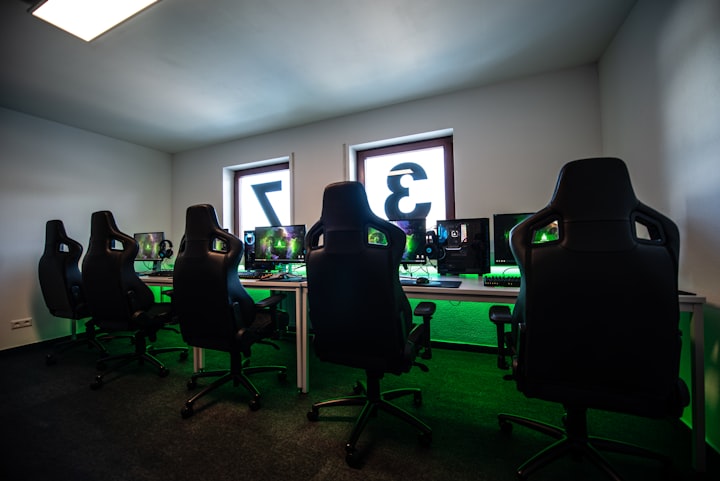I was on one of those European budget airlines headed towards, what I didn’t know at the time, one of the Esports capitals of the world, London, UK.
Fashion Week was just around the corner.
I noticed a few tall, slender girls whose appearance screamed ‘runway model.’ That wasn’t out of the ordinary, I’d seen girls like this on flights all the time living in Milan.
More atypical, spread across several of the aisles near to me was a team wearing tracksuits, appearing somewhat athletic, but I wasn’t at all familiar with the logos or apparel.
An older gentleman dressed similarly walked over and began talking almost as soon as he sat down. His accent told me he was French, and he mentioned that he coached an Esports team. I had this blank look on my face. I mean, I was familiar with recreational and competitive gameplay. Maybe even a few of the more well-known teams like Faze Clan and whatnot.
I played online with friends from time to time, but something about them told me these certainly are not your average recreational gamers.
He started filling me in on a tournament they were headed to in Wembley Stadium. I paused and said, “Wembley hosts Esports tournaments now?” He smiled.
I mean, this seemed like a foreign concept, but I was intrigued. After briefing me on the landscape, I knew as soon as I got off the flight, a well-needed deep dive into the Esports ecosystem was on the horizon. He gave me his card and when I got to my hotel, I flipped open my computer and started searching topics such as the ‘Esports Championship Series’ and ‘ESL’ on Youtube. Then it hit me.
Being a lover of investing and these ‘bigger than life’ ideas, I had an intuition that I needed to immerse myself in the space…but how? So I started researching to learn more.
A few things immediately stuck out to me.
These professional-grade franchises, similar to conventional sports, were popping up more frequently. Prize pools for competitive gamers across the board were only growing year over year, and so was the audience size.
The entire ecosystem was increasing in commercialization, popularity, and corporate sponsorships at a rate that’s tough to comprehend. But why hadn’t I been privy to this? These were a few of my “aha!” moments.
Sooner or later video games will be indistinguishable from reality, there’s no arguing that. Either we’ll be dead or it will happen. You don’t need to look much further than the Oculus VR headset as a stepping stone into this virtual world. Side note, if you’ve never checked it out, I highly suggest trying one.
It makes you ponder the simulation theory, but we’ll table that for another time. More eyes will naturally steer in the direction of the industry as game developers and gamers continue to evolve.
Now take the power of streaming and the attraction for these corporate sponsors. I’m sure you’re familiar with the popular site Twitch, for example, and their $960 million dollar Amazon acquisition a few years back. Corporate sponsors are itching to host their logo on the shirt or headset of a popular streamer boasting tens of thousands of viewers for hours on end. Not only do they get viewership while they compete (which by the way some of these tournaments last 4-6 weeks), but if choosing to do so, they can monetize themselves by getting viewership while they practice. That’s a double win for a fraction of the cost for sponsors.
I mean, this is where the younger generations are after all.
Then for these gamers, there’s a clear attraction to avoiding some of the more common, and sometimes life-altering injuries that you find in conventional sports. No concussions, broken bones, etc. Maybe you suffer a sprained wrist, some back pain, or eye soreness; but I think the advantages are clear here.
Outside of monetizing streaming, some of the real perks lie in these tournament prize pools. Professional players and teams are cashing out with 30 million dollars in earnings when winning the prestigious global Esports contests.
Plus the support staff behind them is incredible, which is key in maintaining your top-ranked position.
I'm talking about treatment and talent development plans, similar to franchises like Manchester United. Nutritional regimes, workout routines, advanced practice facilities, coaching staff, sponsorships, access to top-of-the-line equipment. Then competing in sold-out stadiums (yes, stadiums) with crowds north of 20 thousand people, all to watch teams play video games on their computers. It’s surreal, but it’s here and it’s only the beginning.
And players aren’t the only ones hitting it big. In March of 2021, Roblox, a marketplace that allows individuals to program their own games and play games with other people, IPO'd for $40 billion.
NFL Owners like Bob Kraft fielded an Esports franchise of his own.
So I started thinking, can anyone become a professional Esports player? I mean, how hard can it be? Or how much dedication does it require for those who already game casually and are pretty good?
Like with any skill in life, it doesn’t happen overnight. Esports players start from the ground up. To go professional, it requires years of practice, persistence, and consistency. Sometimes 4 hours of gameplay per day on the same game title. Use Fortnite as an example. Then the talent development benefits are critical to advancing.
Picture the sheer volume of gamers in the world and the talent that lies within that pool of gamers. That must mean you have folks all over the world who go completely unnoticed.
Maybe they don’t have the money to upgrade their equipment or to fund a tournament fee.
Fun fact, some of the top-ranked amateur players across countries in Southeast Asia compete on their mobile devices. Now imagine if they had the same opportunity as some of the more networked individuals. After all, relationships are just as important as your skillset. Some may argue more, but I won’t.
The problem that became so apparent is that players are forced to self-fund their path to professionalism. Many dream to one day reach that mountain peak where they can turn their passion into a profession, but simply don’t have the capital to do so.
Because Esports is such a lucrative opportunity for forward-thinking investors, players, and teams, it would only make sense to bridge that gap. Right?
That’s where GameStake was born.
Much more to come on the how and why.
If you’d like more articles like this, drop a comment below. Much more content to come. Also, be sure to get in touch with us if you’d like to write content for our page. We’ll feature your gamer tag.
We want to hear about your personal experiences related to gaming.







Comments
There are no comments for this story
Be the first to respond and start the conversation.